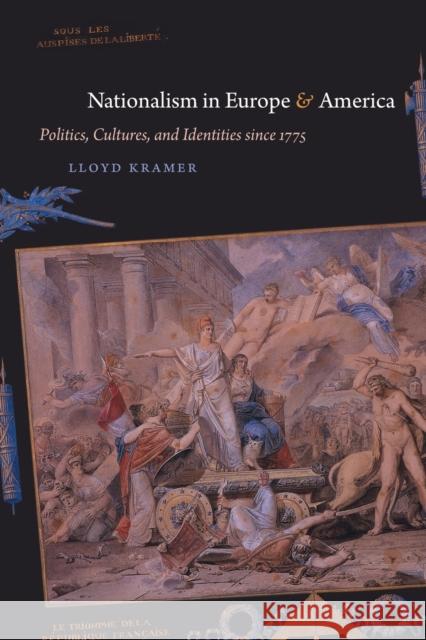Nationalism in Europe and America: Politics, Cultures, and Identities since 1775 » książka
Nationalism in Europe and America: Politics, Cultures, and Identities since 1775
ISBN-13: 9780807872000 / Angielski / Miękka / 2011 / 272 str.
Examining the history of nationalism's pervasive influence on modern politics and cultural identities, Lloyd Kramer discusses how nationalist ideas gained emotional and cultural power after the revolutionary upheavals in the late eighteenth-century Atlantic world.
Nationalism in Europe and America analyzes the multiple historical contexts and intellectual themes that have shaped modern nationalist cultures, including the political claims for national sovereignty, the emergence of nationalist narratives in historical writing and literature, the fusion of nationalism and religion, and the overlapping conceptions of gender, families, race, and national identities. Kramer emphasizes the similarities in American and European nationalist thought, showing how European ideas about land, history, and national destiny flourished in the United States while American ideas about national independence and political rights reappeared among European nationalists and also influenced the rise of anticolonial nationalisms in twentieth-century Asia and Africa. By placing nationalist ideas and conflicts within the specific, cross-cultural framework of Atlantic history and extending his analysis to the twentieth-century world wars, Kramer offers readers a thoughtful perspective on nationalism's enduring political and cultural importance throughout the modern world.
Examining the history of nationalisms pervasive influence on modern politics and cultural identities, Lloyd Kramer discusses how nationalist ideas gained emotional and cultural power after the revolutionary upheavals in the late eighteenth-century Atlantic world.
Nationalism in Europe and America analyzes the multiple historical contexts and intellectual themes that have shaped modern nationalist cultures, including the political claims for national sovereignty, the emergence of nationalist narratives in historical writing and literature, the fusion of nationalism and religion, and the overlapping conceptions of gender, families, race, and national identities. Kramer emphasizes the similarities in American and European nationalist thought, showing how European ideas about land, history, and national destiny flourished in the United States while American ideas about national independence and political rights reappeared among European nationalists and also influenced the rise of anticolonial nationalisms in twentieth-century Asia and Africa. By placing nationalist ideas and conflicts within the specific, cross-cultural framework of Atlantic history and extending his analysis to the twentieth-century world wars, Kramer offers readers a thoughtful perspective on nationalisms enduring political and cultural importance throughout the modern world.











